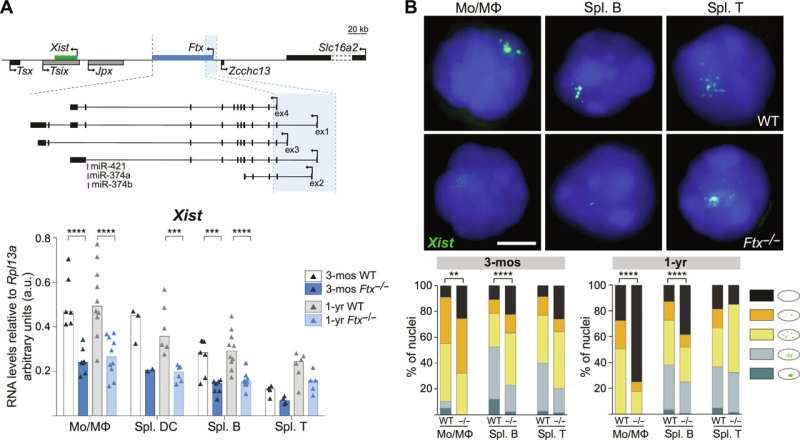May 22, 2024 report
This article has been reviewed according to Science X's editorial process and policies. Editors have highlighted the following attributes while ensuring the content's credibility:
fact-checked
peer-reviewed publication
trusted source
proofread
Study in mice shows alterations in X-chromosome inactivation predispose female mammals to autoimmune disease

A team of infectious and inflammatory disease specialists affiliated with several institutions in France reports that women are more susceptible to autoimmune diseases, such as lupus, due to failed X-chromosome inactivation.
In their study published in the journal Science Advances, the group knocked out one of the genes involved in X-chromosome inactivation in test mice to study the theory.
Prior research has shown that female mammals, including humans, are more susceptible to developing autoimmune diseases than are males. Why this is the case has not been clear. In this new study, the research team suspected that it must have something to do with women having two X chromosomes while men have X and Y chromosomes.
Prior research has shown that as female embryos develop in the womb, most of the genes present on one of their X chromosomes are turned off, preventing a double dose of proteins produced by gene expression—a process known as X-inactivation.
The research team suspected that some of the inactivated genes may reactivate as women grow older, making them more susceptible to autoimmune diseases. To find out if this might be the case, they knocked out one of the genes responsible for X-inactivation in female test mice.
When the mice grew to maturity, the researchers found that initially there was no difference between normal and engineered mice. But as the mice grew older, many of them began to develop large spleens, one of the major symptoms associated with lupus.
The researchers also found that multiple genes on the inactivated X chromosome had become reactivated in the engineered mice as they grew older. Those genes, they note, have previously been associated with the immune system.
According to the researchers, the study helps explain why female mammals are more susceptible to the development of autoimmune disease. They also suggest their findings may lead to the development of therapies for preventing the reactivation of X chromosome copies, thereby reducing the risk of developing such diseases.
More information: Christophe Huret et al, Altered X-chromosome inactivation predisposes to autoimmunity, Science Advances (2024). DOI: 10.1126/sciadv.adn6537
© 2024 Science X Network





















